Betrothed Love:
In this section of Love and Responsibility, Wojtyla looks specifically at the type of love that a husband and wife share, and he calls this “betrothed love.” The phrase in English that better conveys what Wojtyla means is “marital love,” since he means the love in which a man and woman give themselves fully to one another.
Wojtyla reminds us that we must possess ourselves before we can give ourselves. Self-gift is not about passively becoming what someone else wants us to be. Have you seen the movie 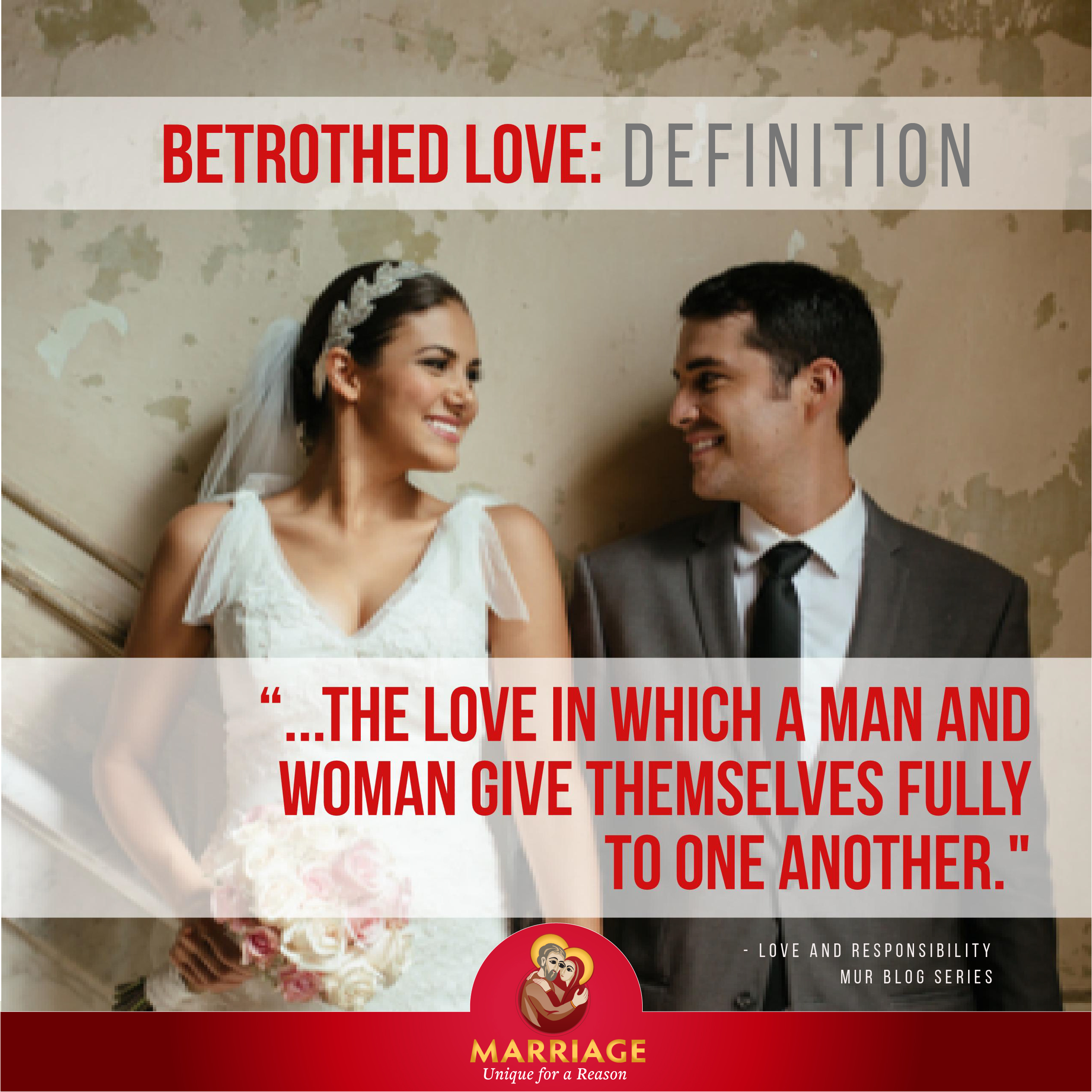 Runaway Bride (1999)? The main character (Maggie) always adjusted her likes and dislikes according to what her boyfriend or fiancé liked. She wanted to be loved, so she changed herself to match whatever the man she was with liked in a woman. With the hippie, she became a hippie; with the athletic guy, she became a sports fan. After this habit was pointed out to her, Maggie realized that she didn’t know herself.
Runaway Bride (1999)? The main character (Maggie) always adjusted her likes and dislikes according to what her boyfriend or fiancé liked. She wanted to be loved, so she changed herself to match whatever the man she was with liked in a woman. With the hippie, she became a hippie; with the athletic guy, she became a sports fan. After this habit was pointed out to her, Maggie realized that she didn’t know herself.
Most of us can probably relate to this impulse at some level: We fudge our favorite book so that we sound smart, or nod our head when our crush talks about a band we’ve never heard of… if that kind of thing becomes a habit, we might reach a point where we don’t “possess” ourselves and cannot find real love. This is perhaps more common for women than men.
Marriage is to Give
Wojtyla points out that, psychologically speaking, it is usually the woman who feels that her role in marriage is to give. However, objectively (or ontologically) speaking, both spouses must give themselves to one another, and not just sexually. “Giving oneself only sexually, without the full gift of the person,”[1] is just a form of use, as previously discussed. Husband and wife give themselves to one another even through the mundane activities of daily life. 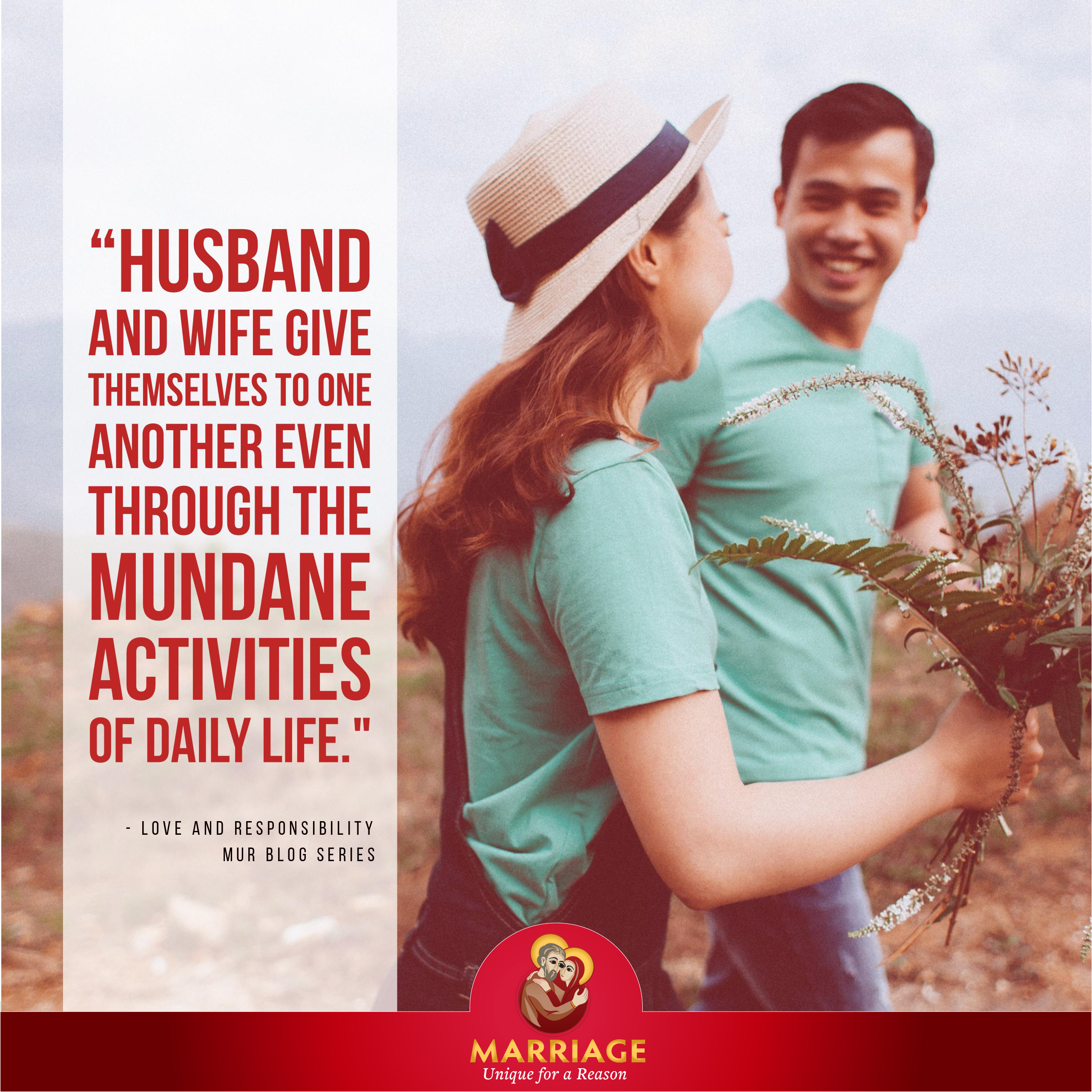
At the risk of being too movie-heavy in this post, the movie Fireproof (2008), while one of the cheesiest movies ever, does a great job communicating this truth about marriage. Once the husband (Caleb) begins really giving himself to his wife by making her coffee, buying her flowers, and considering her needs before his own (possibly for the first time in their entire marriage), the relationship is transformed. Caleb comes to understand that love is a choice; He recognizes that he has been selfish and that he has not acted with goodwill and friendship.
The Person and Love:
Wojtyla concludes with the note that marital love is not some isolated kind of love, different from every other kind. “Betrothed love, though of its nature it differs from all the forms of love previously analyzed, can nevertheless not develop in isolation from 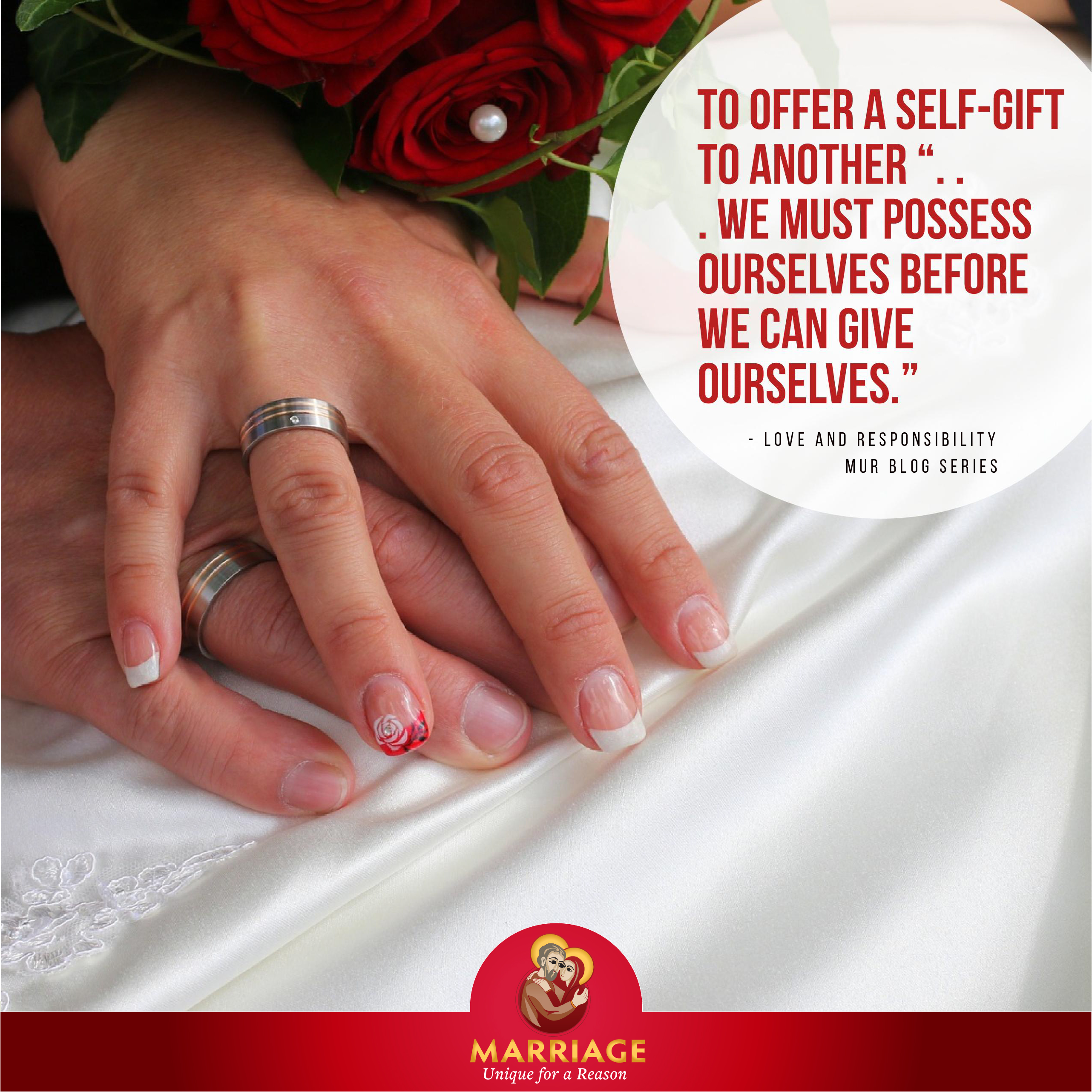 them. In particular, it is essential that Husband and wife give themselves to one another even through the mundane activities of daily life..”[2]
them. In particular, it is essential that Husband and wife give themselves to one another even through the mundane activities of daily life..”[2]
Thus concludes the section on “The Person and Love.” We have looked at attraction, desire, goodwill, reciprocity, friendship, and betrothed love as experiences of the person. In the next section, Wojtyla goes into a psychological analysis of love. Stay tuned!
[1] Ibid, p. 99.
[2] Ibid, p. 100.
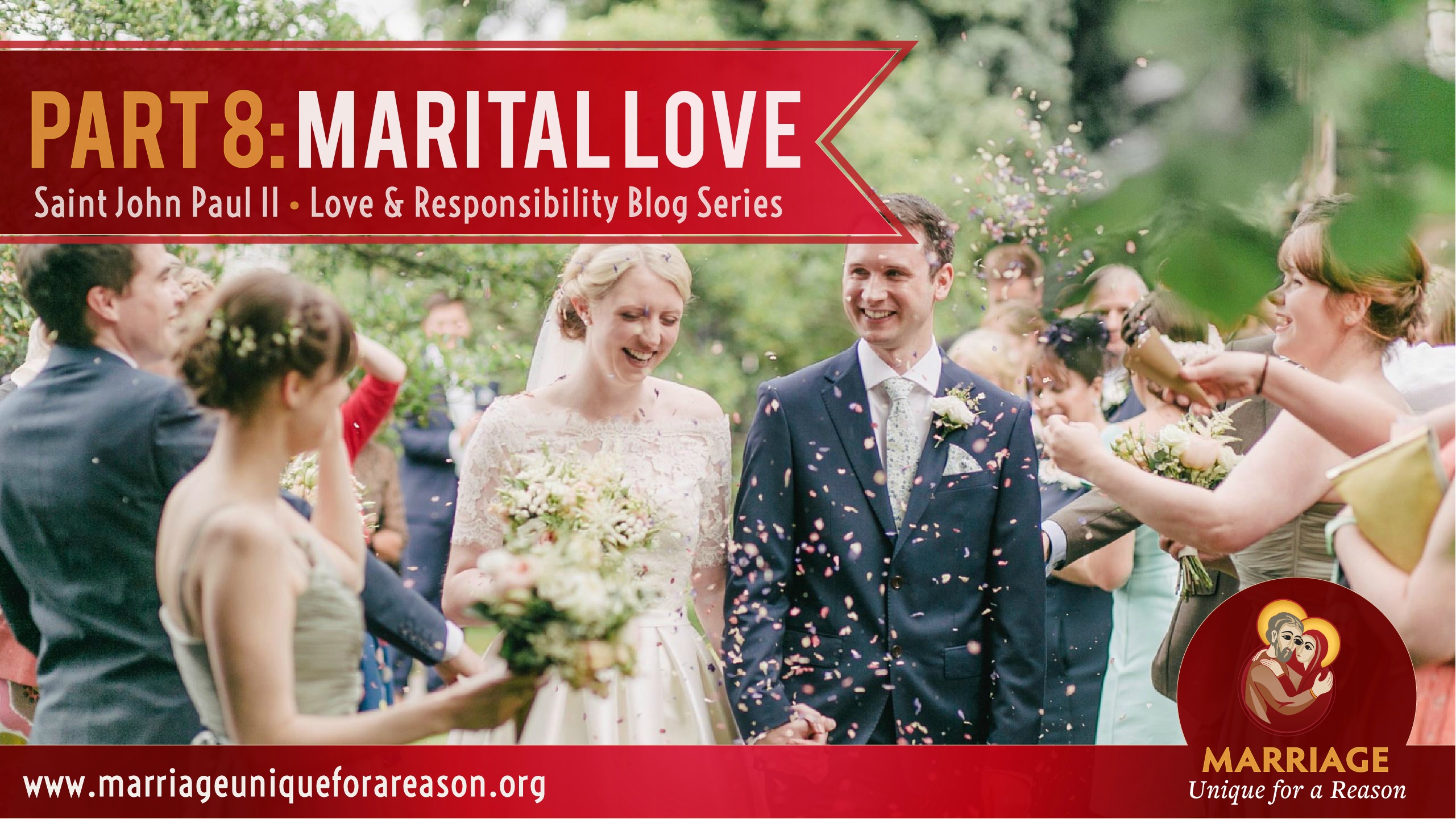
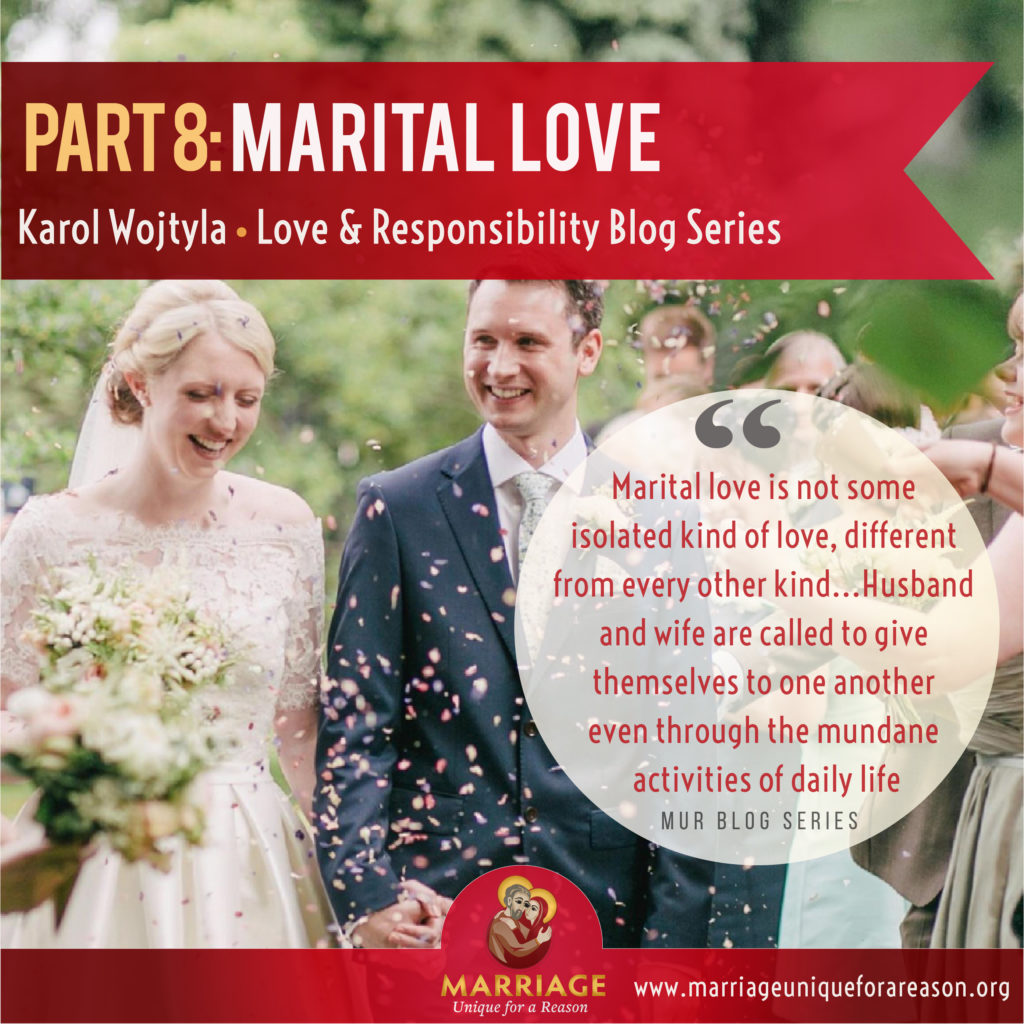
Leave a Reply